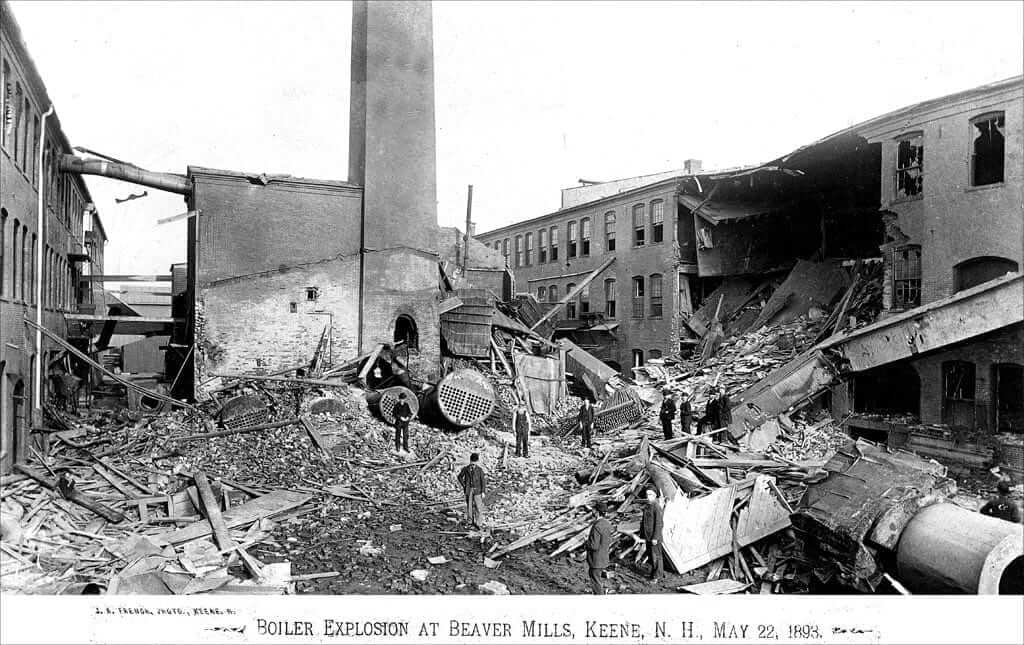Do I Need an “ASME-stamped” Autoclave Sterilizer?
By: Priorclave North America
Categories: Health & Safety Steam Autoclaves

Many lab and facility managers are unsure whether or not they need to worry about their steam autoclave sterilizer being “ASME-stamped.”
Short Answer: Yes, Always Buy an Autoclave Sterilizer Built to ASME Standards
Play it safe and look for the ASME stamp. First and foremost, it’s a matter of life safety: a faulty autoclave sterilizer pressure fitting or chamber is no joke.
On top of that, it’s extremely likely that you’re required by law to be sure your steam autoclave’s pressure vessel at least meets the division one requirements of section eight of the ASME Boiler and Pressure Vessel Code.
To find out if your state or province requires the ASME stamp (Section VIII of the Pressure Vessel Code), see the National Board Synopsis of Boiler and Pressure Vessel Laws, Rules and Regulations.
Long Answer: It’s Complicated (Really, Really Complicated)
In reality, there’s no way in the world a one-page blog post can definitively say whether or not you need an ASME-stamped autoclave sterilizer.
As of 2019, throughout North America, pressure vessels (like those in a steam autoclave sterilizer) are required by law to comply with ASME in all but eight U.S. states.
But the rules themselves are exceedingly complicated, with many intricacies, exceptions, exemptions, and variations by state, province—even city.
For example, in the exact same application in the exact same lab in the exact same city and state, the 150L and 100L versions of our popular top-loading autoclave must have ASME-stamped vessels. Meanwhile, the smaller 60L size may be exempt—despite being the same design, set to the same standard, used for the same tasks, and posing all the same risks and benefits to operators. (All of that said, rest assured that, as a matter of course, every single Priorclave autoclave is fabricated and manufactured to ASME standards and bears an ASME stamp).
For a more absurd example, consider steam boilers used for heating residences. In general, these must be ASME-stamped—a pretty reasonable public safety measure, given the huge destructive force a failed pressure vessel can unleash.
But in the state of Kentucky it can be OK to use a boiler that doesn’t necessarily meet ASME standards, provided you are heating a private residence. Nonetheless, Kentucky still requires that landlords always install boilers that meet all ASME code expectations in multiple-family dwellings (as a matter of public safety).
Meanwhile, in New Orleans, that exact same unstamped boiler (which Kentucky thinks is fine in a private home but unsafe in a multi-family residence) is perfectly safe for heating rental properties—provided four families or fewer live there. Five families? Too risky! New Orleans demands you only install an ASME-stamp boiler.
Interestingly, head north to New York or Michigan—where a boiler will certainly be more strained by harsh winters—and that very same boiler, unsafe to heat more than four families in the Big Easy, is perfectly safe for up to six families.
The Truth about ASME and Autoclave Sterilizers
Is it possible that your facility can squeak by with a non-ASME-stamped autoclave? Certainly: In some states, with some smaller pressure vessels, in some applications, the law allows you to use a less reliable pressure vessel.
But that doesn’t make the application any safer; building codes vary wildly, but the laws of physics are pretty strict—and the cost of a failed pressure vessel can be tremendous.

The Beaver Mills Boiler Explosion (Keene, New Hampshire)—pictured here—predates the first ASME Pressure Vessel Code, by just 7 years (source)

